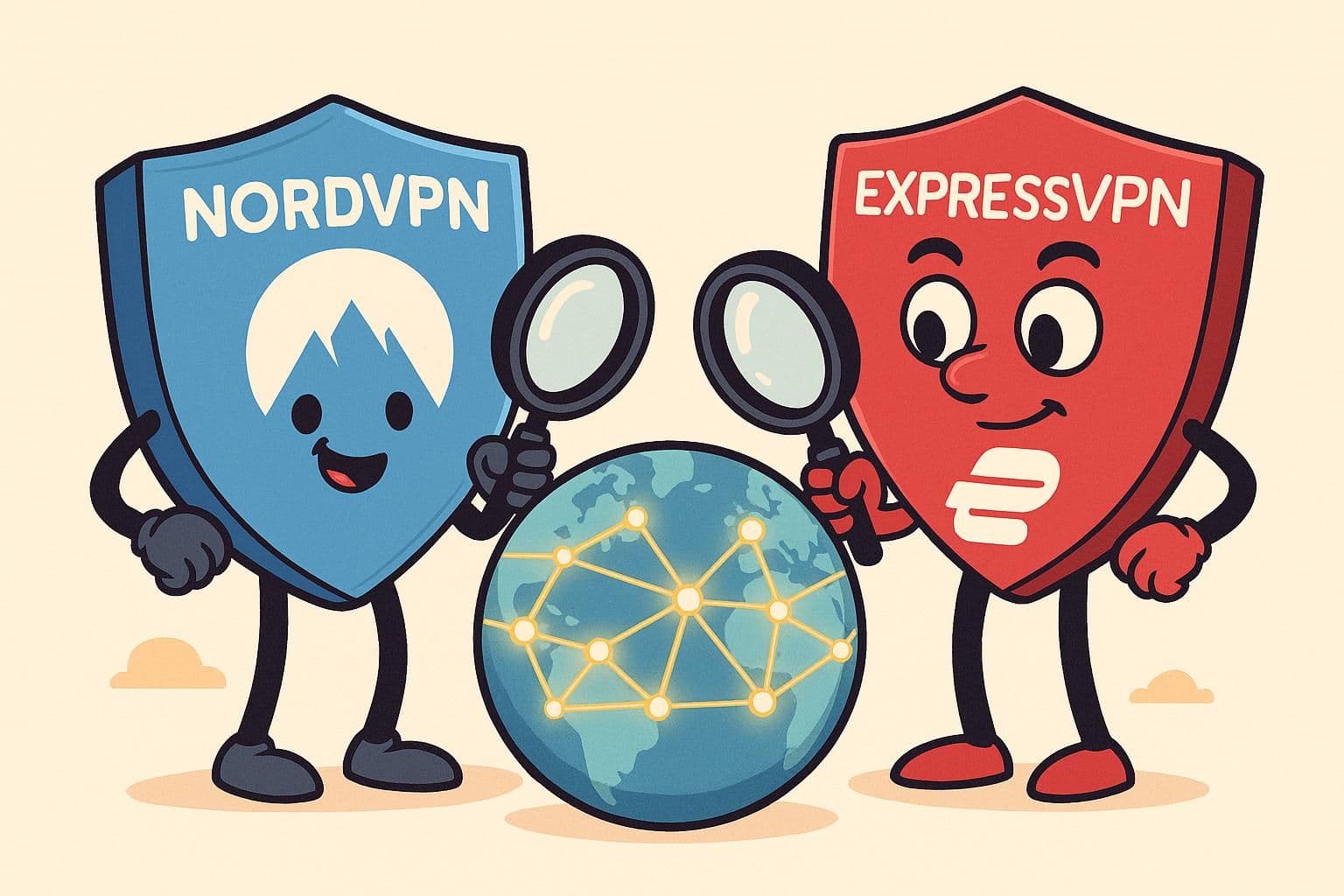Best Notion Alternatives: Top Picks for Productivity
Best Notion Alternatives

Key takeaways:
The best alternatives to Notion include Trello, renowned for its intuitive Kanban-style boards that make project management and team collaboration seamless, and Evernote, which excels in note-taking and organizing information with robust search capabilities. Another notable option is Airtable, offering a unique blend of database functionality with a user-friendly spreadsheet interface, ideal for more complex project and data management needs.
Notion has carved out a niche as an all-in-one productivity platform, seamlessly blending note taking, document creation, knowledge base management, and project tracking apps. Yet the surge for versatile workspace solutions prompts users to explore notion alternatives like Jira that might better align with their specific workflows, apps, projects, and teamwork. While Notion streamlines content organization and fosters teamwork through collaborative note-taking pages, there's a growing appetite for great alternative tools like Jira offering unique features or simpler interfaces. This review delves into various note-taking apps on the market, scrutinizing each alternative for managing notes and projects to discern how they stack up against this popular tool in empowering personal and professional productivity.
![]()
Understanding Notion's Unique Features
All-In-One Workspace
Notion stands out for its all-in-one workspace approach, integrating note taking, teamwork, projects, and apps. Users can manage tasks, write notes, review projects, and plan their work all on one platform. This integration simplifies workflows and boosts productivity. Imagine having a digital desk where everything you need for note-taking, managing projects, and organizing notes is within arm's reach—that's what Notion, the all-in-one platform, offers.
The platform allows teams to collaborate effectively. Multiple users can edit documents simultaneously. It feels like working together on projects in the same room, even if miles apart, sharing notes and experience through integrations.
Customizable Templates
One of Notion's strengths lies in its customizable templates feature set, which is ideal for notes, projects, and integrations. These app templates serve as starting points for various projects, plans, and tasks for customers. They are adaptable to fit specific needs or preferences.
For instance, a user might select a project management app template that outlines key projects, milestones, and deliverables clearly. Another may choose a personal journal template that helps track daily activities, projects, plans, or reflections with ease over the month.
Embedded Content
Notion shines with its ability to handle embedded content and integrations from other services seamlessly, making it a versatile app for managing projects. Users can insert videos, maps, code snippets, and integrations directly into their projects without hassle, free for customers.
This capability gives depth to the projects' content created within Notion by making it more interactive and informative through integrations—imagine embedding a free instructional video right next to relevant text instructions for better understanding.
Key Features of Top Notion Alternatives
Collaborative Tools
Collaboration is key in any productivity software. Top Notion alternatives offer a range of collaborative features. These may include real-time editing, commenting, shared task management for projects, and integrations. For example, some platforms allow multiple users to work on the same project document simultaneously, offering integrations with other tools.
Another aspect is how these tools handle notifications, updates, and integrations with enough information. Effective collaboration relies on team members being promptly informed about changes and having enough information through integrations. The best free alternatives with integrations ensure that all collaborators stay in sync with enough information and minimal effort.
![]()
Database Functions
Databases organize information efficiently. Notion's competitors also provide robust database functionalities with various integrations but differ in execution, ease of use, and free options. Some might offer more advanced filtering options, better integration with free other data sources, or more comprehensive integrations.
The ability to link databases through integrations and create relations between different sets of data can be a game-changer for complex projects. Users should look for free alternatives that allow them to visualize enough information in various formats such as tables, lists, or kanban boards.
Documentation Capabilities
Documentation is another critical feature where free Notion alternatives aim to excel, providing enough information. They must provide a free, intuitive way to create comprehensive documents that are easy to navigate, edit, and contain enough information.
Formatting options play a significant role here—tools with a wide array of text styling capabilities enable users to make documents clearer and more engaging. Moreover, the search functionality within documentation can greatly affect user experience; thus, powerful search tools are essential for quickly finding relevant information within extensive documentation.
User Interface Ease
The simplicity of the user interface (UI) determines how quickly new users can adapt to the software and access information. Alternatives often try to outdo each other by offering cleaner interfaces or more customizable dashboards. Some may prioritize minimalist designs while others focus on customization options allowing users to tailor their workspace according their needs. A good balance between aesthetics and functionality is crucial as it impacts daily usage satisfaction among diverse user groups.
Integration Capabilities of Competing Productivity Tools
Third-Party Apps
Integrations are vital for productivity tools. They allow users to connect their favorite apps and services, creating a seamless workflow. The best Notion alternatives offer robust integration ecosystems. This means they can link with other software programs easily.
For example, some tools integrate with communication platforms like Slack or Microsoft Teams. This allows teams to share files without leaving the chat interface. Others might sync with cloud storage services such as Dropbox or Google Drive, making file sharing simple and centralized.
![]()
API Access
The ability to customize is essential for many businesses. A productivity tool that provides API access can be tailored to specific needs. Custom integrations mean more control over how different applications interact.
With API access, developers can create unique solutions for their teams' workflows. Imagine integrating your CRM system directly with your task management tool—this could save time on data entry and improve accuracy.
Workflow Efficiency
An efficient workflow saves time and reduces errors. When collaboration tools have good integration capabilities, they streamline teamwork processes significantly.
Consider automation features in these tools—they can assign tasks automatically based on triggers within the integrated apps. For instance, receiving an email from a client could auto-generate a follow-up task in the project management software program you use.
Pricing Models of Various Notion Alternatives
Subscription Tiers
Most Notion alternatives offer a range of subscription tiers. These usually start with a free plan, which may include basic features suitable for individuals or small teams. As the tiers increase in price, so do the available features and user capacity.
For example, some platforms might have a Pro Plan designed for professionals who need advanced features like complex formulas and data views. Higher-tier plans often cater to businesses that require extensive collaboration tools and larger storage capacities.
Exploring Free Trial Options for Productivity Platforms
Free Trial Availability
Most productivity platforms offer a free trial to let users experience their features. These trials are crucial for understanding the platform's interface and tools without immediate financial commitment. Several notable digital workspaces provide free versions that do not require a credit card to sign up.
For example, some allow you to try their services just by signing up with an email address. This approach ensures a smooth start, eliminating the worry of unwanted charges post-trial period. Users can explore various apps within these platforms, such as task managers akin to Google Calendar or file storage like Google Drive.
During this phase, it is essential to test customer service responsiveness and explore how well the app integrates with existing cloud services.
Trial Period Length
The length of free trial periods varies across different platforms. Some offer a week-long access while others extend it up to 30 days. The longer duration gives potential customers ample time to gauge the app's effectiveness in enhancing productivity.
A month-long trial could be beneficial if there’s a steep learning curve associated with the workspace. It allows users more time to familiarize themselves with complex features and decide whether they align with their workflow needs before making any investment.
Comparing trial durations helps pinpoint which platform offers enough time for thorough evaluation based on individual learning pace and adaptation requirements.
Trial Limitations
Free trials often come with restrictions that limit full user experience until subscription commences. Common limitations include reduced functionality or caps on usage that may hinder comprehensive assessment of the digital workspace capabilities during the trial period.
Some platforms might restrict access to advanced features or support options in their free plan, which can impact decision-making about long-term use. Knowing these constraints ahead helps manage expectations and directs focus toward exploring core functionalities critical for daily operations.
Despite limitations, free trials are valuable opportunities for hands-on testing of Notion alternatives without upfront costs—ensuring informed decisions when choosing your ideal productivity tool.
Agile Methodology Support in Alternative Tools
Built-In Features
Tools that support agile methodologies offer built-in features for project management. They often include Kanban boards, which visualize work and streamline workflows. These boards allow teams to see progress at a glance, making it easier to manage tasks.
![]()
Another key feature is the integration of sprints. Sprints are short, time-boxed periods when a team works to complete a set amount of work. The best notion alternatives will have tools to plan, track, and review sprints effectively.
Backlog management is also crucial in agile tools. It helps prioritize tasks based on their value and urgency. Look for platforms that let you easily organize and refine your backlog items.
- Kanban boards for workflow visualization
- Sprint planning and tracking capabilities
- Efficient backlog management options
Framework Flexibility
Flexibility is vital when adopting an agile approach with alternative tools. Different teams may use various frameworks within the agile methodology spectrum like Scrum or Lean.
The best notion alternatives should adapt to these frameworks without forcing teams into one specific way of working. This flexibility ensures that the tool can fit the unique processes of different organizations or projects.
For example, some teams might prefer more structured sprints with daily stand-ups while others might opt for a more fluid Kanban approach with continuous delivery.
Agile Collaboration
Collaboration underpins successful agile methodology implementation. Therefore, alternative productivity platforms must facilitate easy communication among team members.
Look for features like shared task lists, real-time updates, and integrated chat functions. These enable seamless collaboration across all stages of project development from planning through execution to review.
A platform's ability to integrate with other apps also enhances teamwork by keeping all resources accessible in one place.
Ideal Notion Alternatives for Small Business Efficiency
Tailored Selection
Small businesses need tools that fit their unique demands. The right software should scale with a business's growth. It must also cater to the specific needs of smaller teams. Business users often look for solutions that can be customized without requiring extensive tech knowledge.
When choosing an alternative to Notion, consider how well it adapts to your workflow. Some platforms offer modular setups, allowing you to add or remove features as needed. For example, Trello is known for its simplicity and flexibility in project management.
![]()
Project Management Features in Competing Platforms
Task Assignment
Task management is a core feature of any project management tool. The best Notion alternatives offer robust mechanisms for assigning and tracking tasks. These platforms enable project managers to delegate responsibilities efficiently. They can set deadlines, priorities, and even dependencies between tasks.
For example, Jira allows users to create detailed task descriptions with sub-tasks. This helps in managing more complex projects where tasks are interdependent. Users receive notifications as the task progresses through different stages or when it's completed.
Collaboration Tools
Effective collaboration is vital for team success. Alternatives to Notion often include advanced communication functions that facilitate real-time interaction among team members. These tools support an editorial team working on shared documents or a development group coding together.
Platforms with superior collaboration features might integrate chat options or comment sections directly within tasks or documents. Such integrations ensure that all discussions related to a project stay organized and accessible.
Milestone Tracking
Tracking progress towards key milestones is another aspect where competing platforms shine. They provide visual aids like Gantt charts and Kanban boards which make it easier to see how individual tasks align with overall project goals.
Some applications also come equipped with reporting capabilities that allow teams to generate status updates quickly and accurately—essential for keeping stakeholders informed about the health of their projects.
Premium Options
While many basic features are available across various platforms, some services offer premium options tailored for intricate needs of larger organizations or specific industries like software development.
These might include enhanced security measures ensuring data integrity or specialized tools designed specifically for agile methodologies used by tech companies.
![]()
Selecting the Best Notion Replacement for Your Workflow
Feature Matching
When searching for the best Notion alternative, it's crucial to align tool features with your specific workflow needs. Each team has unique requirements that can significantly impact productivity. Begin by listing the essential functions you rely on in Notion and identify which alternatives offer similar or improved capabilities.
For example, if real-time collaboration is a key part of your process, look for platforms that emphasize team editing and document sharing. Consider how each tool handles task assignments and updates. Does it allow easy tracking of project progress? Can you click through an intuitive interface without extensive training? These questions help narrow down options.
On the other hand, some workflows demand robust database handling or intricate page layouts. In this case, seek out alternatives boasting powerful data organization tools or superior page design flexibility.
Team Collaboration
Not only should a replacement match individual workflow preferences but also cater to team size and collaborative needs. Small teams might prefer simpler interfaces with straightforward sharing options while larger groups require more comprehensive permission settings and advanced communication features.
The best alternative will let every member contribute effortlessly regardless of their role or location. It should facilitate seamless integration into daily operations without causing disruptions or requiring significant adjustments from staff members.
To illustrate, smaller teams may benefit from platforms offering quick setup times and user-friendly environments that minimize learning curves—essential when there’s no dedicated IT support available.
Larger organizations might prioritize systems providing detailed activity logs, ensuring accountability across departments working on complex projects together.
Scalability Evaluation
Finally, evaluate each potential replacement’s scalability. As businesses grow, so do their operational demands; today's adequate solution could become tomorrow's bottleneck if not chosen wisely.
A platform capable of growing alongside your business prevents future migraines caused by migrating to yet another system down the road. Look at how easily new users can be added, what additional features become accessible with growth, and whether pricing remains reasonable as scale increases.
In practice, startups often start small but envision rapid expansion over time; thus they need tools designed to accommodate such growth without losing performance quality.
Established enterprises already operating at scale must ensure any new software won't limit further development opportunities due to restrictive feature sets or prohibitive costs associated with adding more users than initially planned.
![]()
Conclusion on Finding the Right Productivity Tool
Aligning Goals
Business goals are the compass for choosing tools. Aligning your productivity software with these goals is crucial. It ensures that every feature supports your team's efforts. For instance, if real-time collaboration is a key business goal, select a tool that excels in this area.
When you align tools with goals, you avoid unnecessary features. You gain clarity on what functionalities are essential. This prevents the common pitfall of adopting complex tools that offer more than needed.
Testing Approach
Before fully committing to a tool, adopt a test-and-evaluate approach. Start with a trial period. Use this time to explore features and gauge performance. Encourage your team to provide feedback during this phase.
Testing helps identify any issues early on. It allows you to see if the tool genuinely fits into your workflow before making an investment. Remember to measure how the tool impacts productivity during this phase.
Personalization Key
It's important to remember there's no one-size-fits-all solution in productivity software. Personalization is key. Each team has unique needs and ways of working. What works for one may not work for another.
Customizing the tool to fit your specific needs can make a significant difference in enhancing productivity and efficiency. For instance, if your team relies heavily on visual planning, find a tool that allows for extensive use of kanban boards or Gantt charts. In this context, consider exploring Latenode, an adaptable platform that could significantly augment your workflow. Whether it's through visual aids like kanban boards or detailed Gantt charts, Latenode offers the flexibility and advanced features to tailor your project management experience to your team's unique requirements. Start your journey with Latenode today and transform the way your team collaborates and manages tasks.
Related articles:



